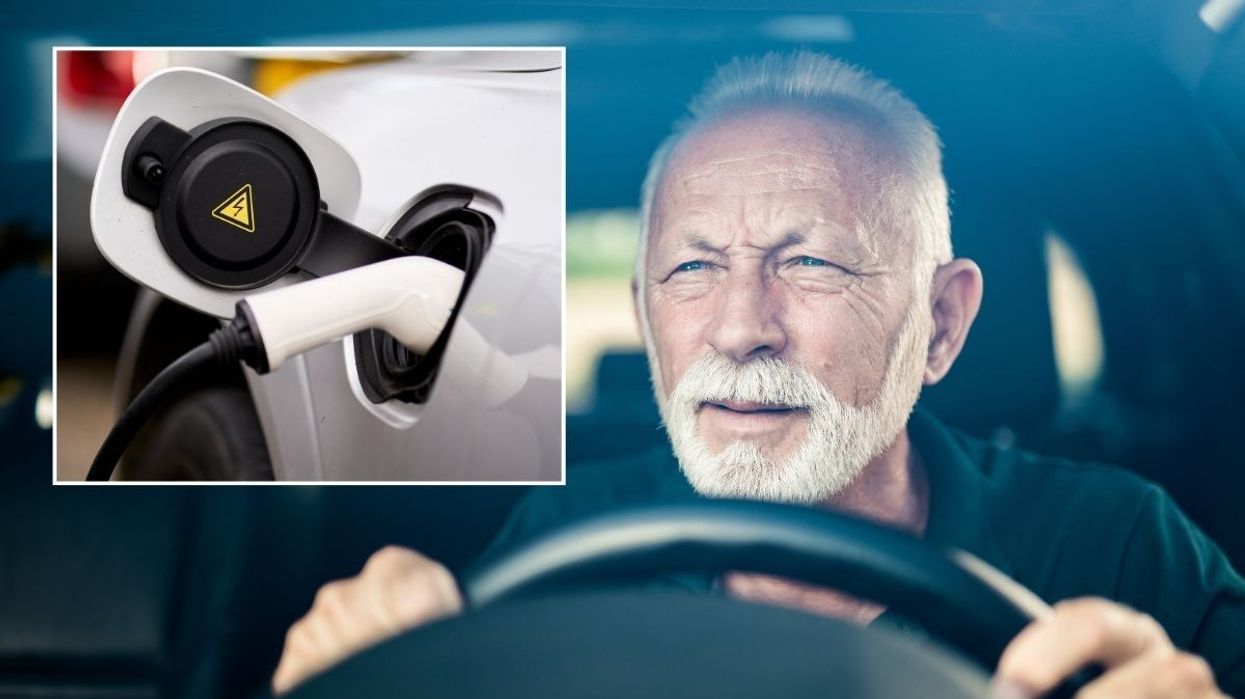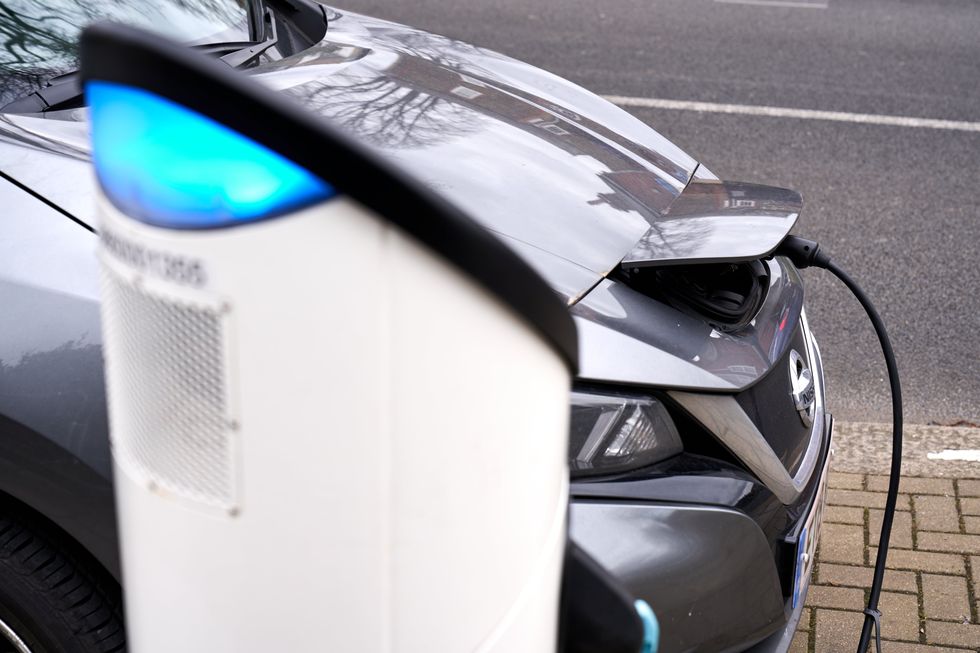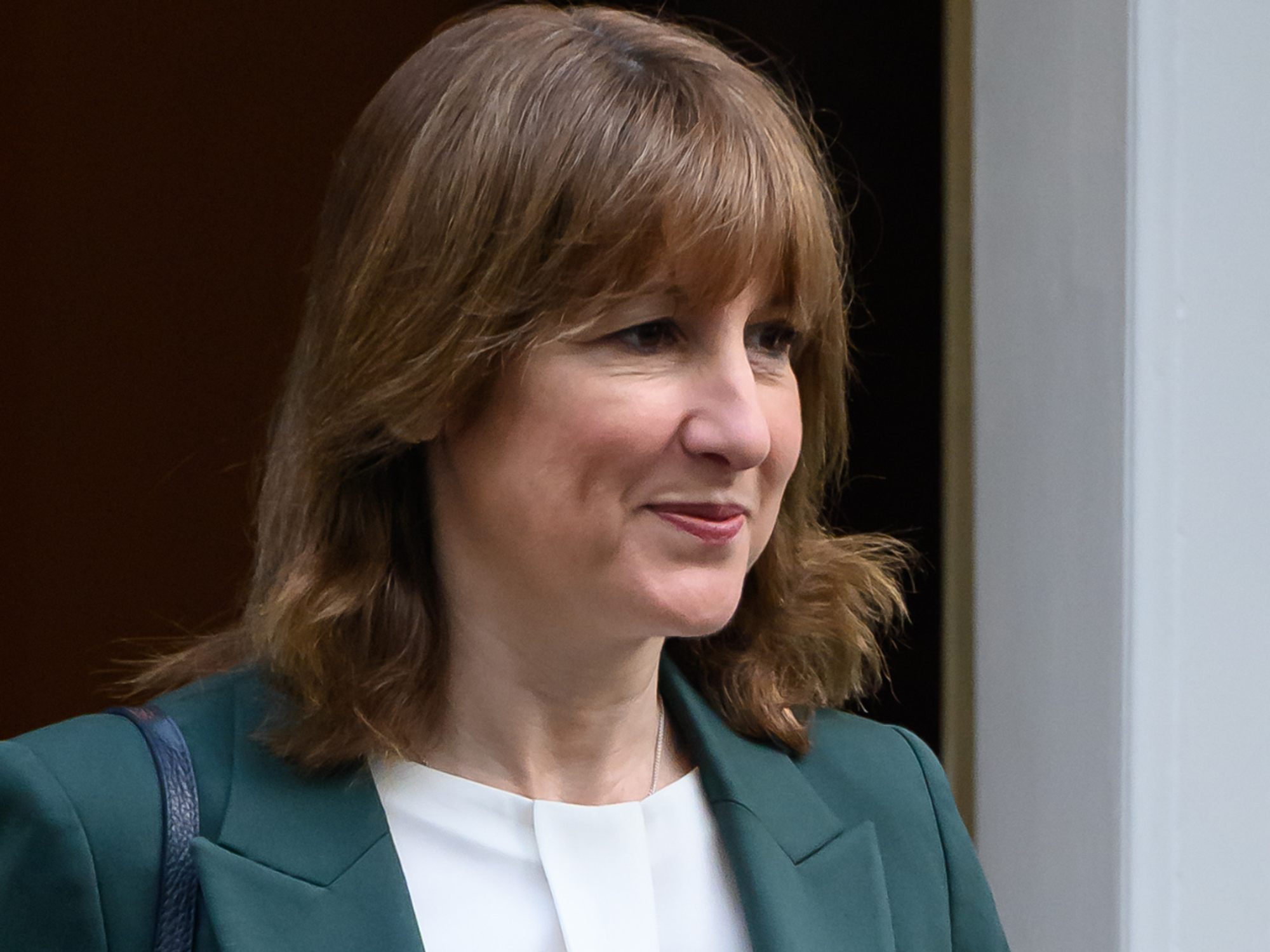Elderly drivers refuse to switch to electric cars as Fiat boss admits people have 'turned their backs' on EVs

Elderly drivers were found to be the most resistant to electric vehicles
|PA/GETTY

Many drivers still believe they will eventually invest in electric ahead of the 2035 car ban
Don't Miss
Most Read
New research has found that older people are the most hesitant to switch to an electric vehicle as one major car brand admits that only the younger generations are interested in EVs.
A recent poll has found that millennials are leading the way for the UK's move towards zero emission vehicles with almost six in 10 saying their next vehicle will be an electric vehicle, compared with 36 per cent of people of all ages thinking the same.
A further 22 per cent of millennials (35 to 44 years old) predict they will move to an electric car within the next 12 months, compared to just eight per cent of people across all age groups.
Despite the optimism from younger generations, 30 per cent of those aged 55 and over said they would never consider going for an electric vehicle.
Do you have a story you'd like to share? Get in touch by emailing motoring@gbnews.uk

Drivers admitted that they would be more likely to buy an EV with more financial incentives
| PAThe research, from Volkswagen Financial Services UK, also found that six in 10 drivers believe they will inevitably need to drive an EV in the future as they phase out petrol and diesel car sales.
Mike Todd, CEO of Volkswagen Financial Services UK, said: "Millennials are clearly leading the way, and they are the most committed to getting behind the wheel of an EV in the near future, certainly when compared to other age groups.
“Aside from the sustainability benefits, many drivers are citing the holistic, long-term cost savings that come with running an electric vehicle.
"At a time of a cost-of-living crisis, the importance of sound financial decision-making is clear, and 35-44-year-olds with growing responsibilities around mortgages and young families, are already aware of how making the move to an EV can help."
The main benefit of electric vehicles for most drivers is viewed as cost savings, with more than half believing that an EV can help them save on running costs, road tax and servicing.
Around 45 per cent of drivers across all groups said they saw the savings as the primary benefit of an EV, although others said it would help reduce their personal carbon emissions (39 per cent) and cut their reliance on fossil fuels (36 per cent).
Half of drivers (49 per cent) also called for the benefits of more financial incentives to encourage them to buy an electric car.
Other popular measures supported by drivers include better charging infrastructure (47 per cent) and more affordable public charging and the removal of the "pavement tax" (42 per cent).
This comes as a boss of one of the most popular car brands in the world admitted that it was difficult to get everyone to switch to an electric car.
CEO of Fiat Olivier Francois said that all drivers, bar the youngest generation, have "turned their back on sustainable solutions" like electric vehicles.
He acknowledged that this had been impacted by the likes of the coronavirus pandemic and the subsequent shortage of raw materials which have damaged the uptake of EVs in recent years.
The 62-year-old said: "We obviously, like everyone else, thought that the world would go electric faster and the cost of electrification would go down faster.
LATEST DEVELOPMENTS:
- New 20mph speed limit update could lead to 'sheer frustration for drivers from all corners of Wales'
- Keir Starmer risks backlash from drivers in King's Speech by ignoring fuel duty, car insurance and more
- Major new fuels are a 'genuine way' to keep petrol and diesel cars 'on the road for many years to come'

Olivier Francois said older generations were less impressed with electric cars
|STELLANTIS
"But, we couldn't imagine that Covid would happen, shortage of raw materials would happen, the European Society, not all, not the youngest part, would turn their backs on the sustainable solutions," he told Autocar.
It comes as the new Fiat 500 Ibrida model will be powered by a Firefly 1.0-litre mild-hybrid petrol engine as the company manages its lineup in preparation for the 2035 petrol and diesel car ban in the European Union and UK.










